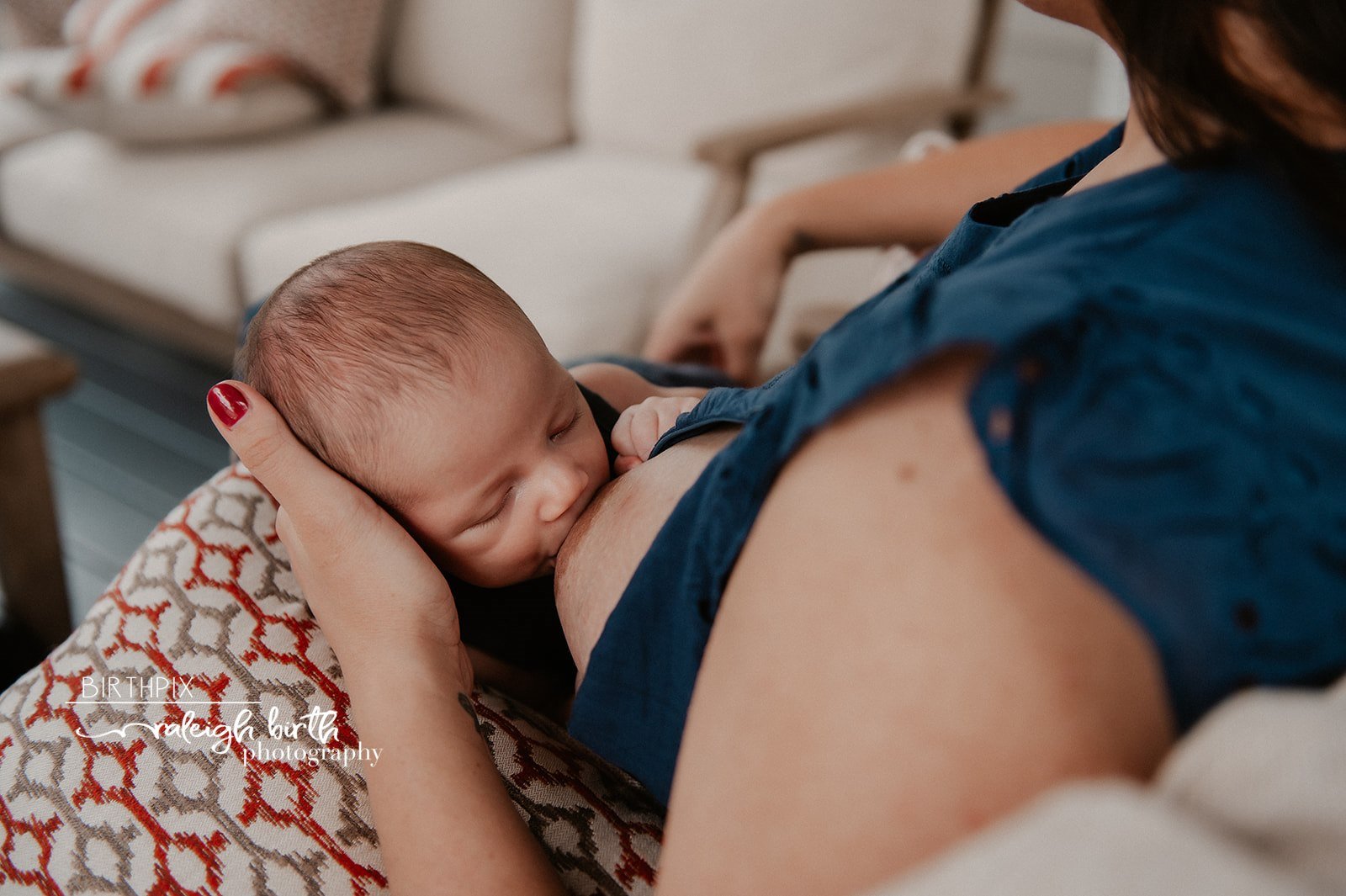The Fourth Trimester
navigating the Postpartum Season with intention
& Resource List for Raleigh-Durham Postpartum Families
The transition into motherhood is profound, marking a period of intense physical and emotional change. It’s said that those first days after having a baby are akin to taking 100 birth control pills and then suddenly dropping to zero. This metaphor illustrates the dramatic shift your body endures as it recalibrates—impacting your mind, body, and hormones on multiple levels. Each mother and birthing person’s experience is uniquely their own, yet universally, it's a time of great complexity. As we navigate these tender first steps of postpartum together, this blog aims to guide, support, and empower you through the vital aspects of preparing, healing, and honoring your body and your journey.
Preparing…
Long before the baby arrives, thinking ahead to the fourth trimester is crucial. Preparation isn't just about baby clothes and nursery themes; it's about setting up a support system that understands the pivotal role they play in your postpartum care. Ensuring you have intentional support means those around you are not only ready but are also educated on how best to assist you. Creating a resource list is an indispensable part of this preparation. This list should include contacts for an IBCLC for breastfeeding support, local mom groups for community connection, a postpartum doula for specialized care, a physical therapist who specializes in postpartum recovery, a counselor to support mental health, and maybe even a house cleaner to ease daily burdens. By anticipating these needs, you can ease the transition into parenthood with a prepared and supportive environment.
Healing…
The postpartum period demands a gentle approach to recovery. It is a time of healing, rest, and nourishing your body back to life and balance. The "5-5-5" rule encapsulates this beautifully: spend five days in bed, five days on the bed, and five days around the bed. This guideline isn't just about physical rest—it's about giving your body the time it needs to start healing while bonding with your newborn. Nourishing your body with healthy, fortifying foods during this time is just as crucial. Remember, healing is not a linear process, and every day may feel different.
Here are a few resources that can aid in your healing journey
Cooking with: The First 40 Days
Honoring…
The postpartum period isn't a time to be rushed; rather, it is a sacred season of bonding and transformation, deeply revered across various cultures globally. This time offers a profound opportunity to navigate the changes in your body and bond with your baby, embracing both the joys and challenges that come with new motherhood.
Traditionally, many cultures worldwide have long understood the significance of the postpartum period, enshrining practices that honor this transformative phase with rituals and structured support systems. For example, in China and Japan, the practice of "Zuo Yue Zi" and "Sango no hidachi," respectively, refers to the first 100 days after delivery. During this period, the mother is encouraged to rest fully, focusing solely on recovery and bonding. The family plays a crucial role, providing support and nourishing meals, ensuring the mother does not engage in household duties, and helping her to avoid physical strain. This confinement is considered essential for the mother's health and the baby's development, as it strengthens the emotional bonds and supports the physical recovery needed after childbirth.
In Mexico, the tradition of 'cuarentena' mirrors this reverence for the postpartum phase. Lasting approximately 30 days, this period is characterized by family and community members coming together to take over household responsibilities, allowing the new mother to rest and heal. During the cuarentena, it is customary for the mother to be surrounded by experienced women who offer guidance and share practices such as herbal baths and massages to aid in recovery.
Similarly, in India, the 40-day confinement period known as 'jaapa' is a time when new mothers are cared for by their families, particularly the experienced elder women. The mother is provided with a diet rich in nutrients to aid in recovery and increase lactation, and is given massages with warm herbal oils to strengthen the body and improve circulation. This period not only focuses on physical care but also on emotional support, recognizing the complex emotional landscape new mothers navigate.
These cultural practices highlight a universal truth: the postpartum period is one of immense physiological change and emotional adjustment. Recognizing and honoring this time as a dedicated season of healing and bonding can significantly impact a mother's wellbeing and her ability to care for her newborn. Western cultures are increasingly acknowledging the wisdom in these traditions, understanding that this "fourth trimester" is crucial and should be approached with care and respect.
By drawing inspiration from these rich traditions, we can cultivate a postpartum experience that honors the sacred bond between mother and child. It’s a time not just for physical recovery, but for emotional and spiritual rejuvenation as well—acknowledging that the journey of motherhood is as profound as it is enduring.
Resources for Postpartum Support in Raleigh-Durham
As you prepare for or navigate your postpartum journey, having localized support can be invaluable. Below is a list of my favorite postpartum resources in the Raleigh-Durham area, which I hope will assist you in this transformative phase.
Physical and Emotional Therapy
Hey I’m Amanda
Birth photographer and mama of 3 amazing kiddos! I am passionate about birth and documenting the powerful stories of new life and growing families. I would love to connect with you!.







